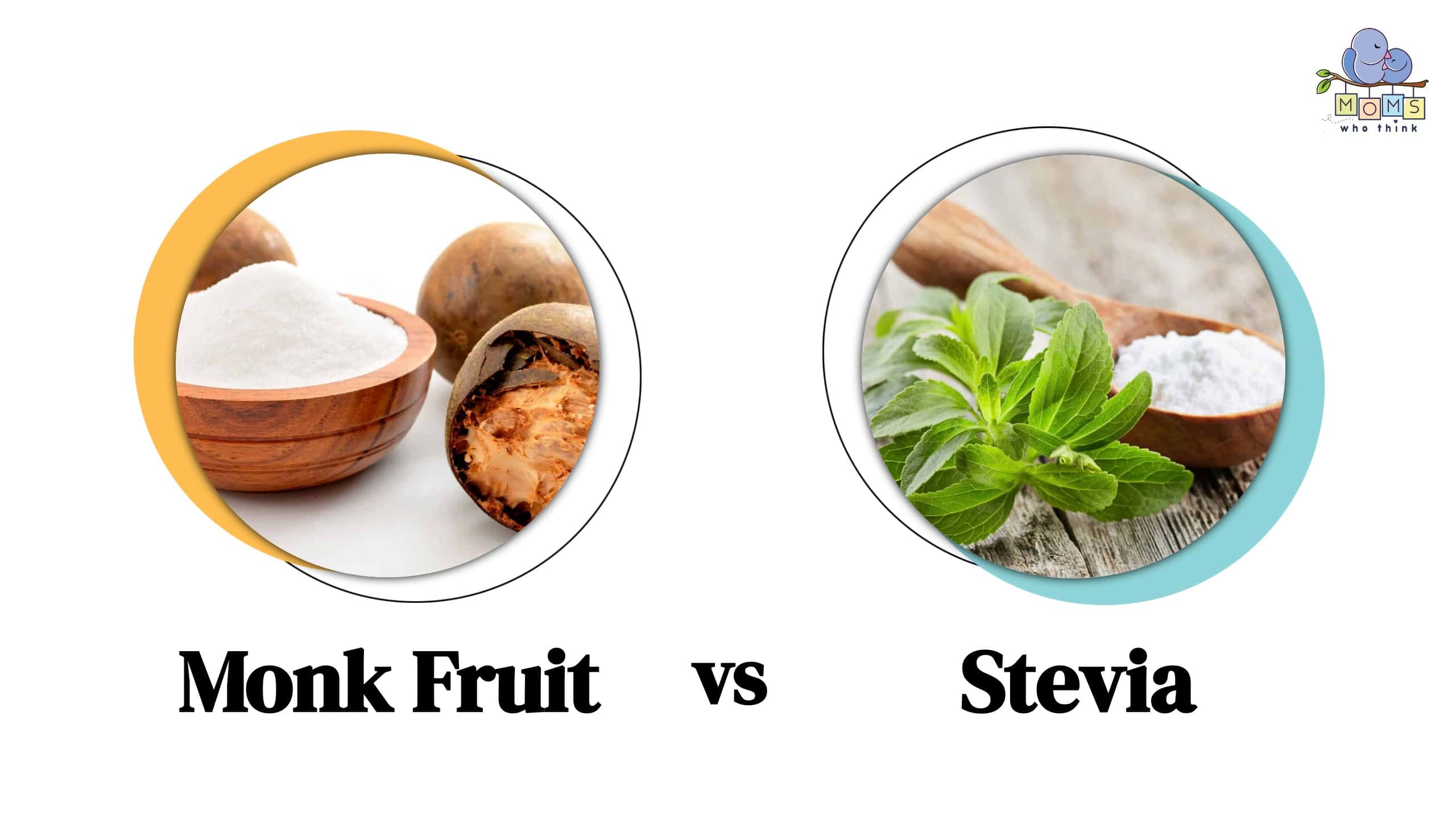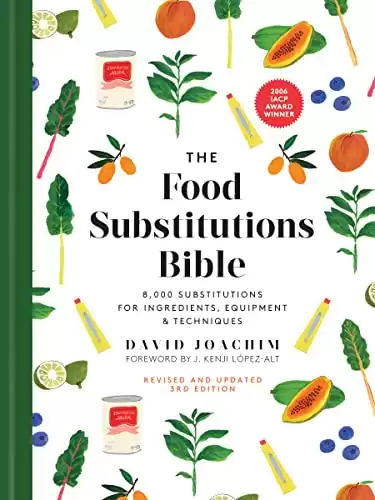Go through the baking aisle of your grocery store and you may find a wide variety of sweeteners on the shelves. While both monk fruit and stevia are healthier alternatives to regular sugar, lacking calories and nutrients, they are not the same. Monk fruit is about 100-250 times sweeter than sugar, more expensive and more difficult to find than stevia. On the other hand, stevia is easier to find, lighter on your wallet, and is about 200-300 times sweeter than regular sugar. However, there are key differences you need to know to make the right decision for your health and palette. So, let’s dive in!
What is Monk Fruit?
This naturally very sweet fruit comes from a plant native to parts of China and Thailand. It has deep roots both in Chinese medicine and cooking for hundreds of years. According to WebMD, it’s known as Swingle fruit (Siraitia grosvenorii) or “luo han guo” in Chinese. It’s said to have got its name from monks who grew this melon-like gourd. People like monk fruit because it's super sweet but has no calories.
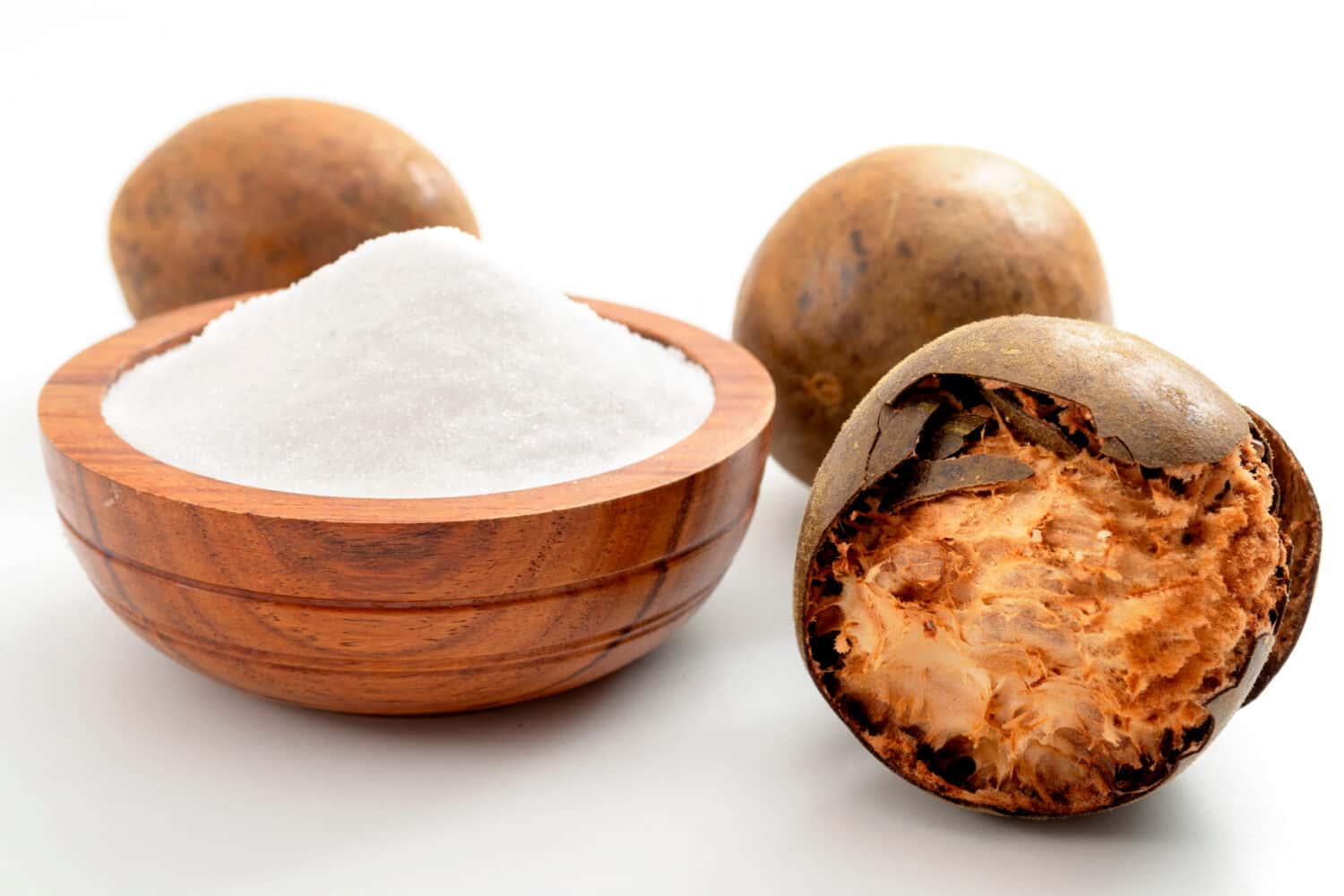
©Victor Moussa/Shutterstock.com
What is Stevia?
Stevia is a natural sweetener made from the leaves of a South American plant called Stevia rebaudiana. It's sweet because of special compounds called steviol glycosides found in these leaves. These compounds are taken from the leaves and turned into stevia sweeteners.
Unlike artificial sweeteners, stevia is a plant-based alternative to regular sugar. It has no calories. This means it won't cause big spikes in your blood sugar and is also good for your teeth. So, you can say it’s a healthy way to satisfy your sweet tooth naturally!
- The must-have convenient reference guide for every home cook!
- Includes more than 8,000 substitutions for ingredients, cookware, and techniques.
- Save time and money on by avoiding trips to grab that "missing" ingredient you don't really need.
Common Uses for Monk Fruit and Stevia
Beverages: Often used to sweeten beverages such as soft drinks, flavored water, sports drinks, and powdered drink mixes.
Baking and Cooking: This includes cakes, cookies, bread, sauces, and marinades. Both can handle high temperatures.
Desserts: Both can be used as a sweetener when baking desserts such as pies, cheesecakes, custards, and mousse.
Hot and Cold Drinks: Both are suitable for sweetening both hot and cold drinks, including hot chocolate, iced tea, and homemade sodas.
Breakfast Foods: Both can be added to cereals, oatmeal, yogurt, and pancakes for added sweetness.
Monk Fruit vs. Stevia: Taste
Take a moment and imagine a mild, fruity flavor with a touch of caramel. That’s the flavor of monk fruit. Whereas stevia, on the other hand has more of a slightly bitter or licorice-like aftertaste. And for some individuals, they do not like the aftertaste of stevia. What about you? Have you tried monk fruit or stevia to compare the taste differences?
Are Monk Fruit and Stevia Heat Stable?
Absolutely! Both monk fruit and stevia are heat stable. That means they can withstand high temperatures without losing their sweetness or undergoing significant chemical changes. This makes both of them suitable for cooking and baking applications.
Monk Fruit vs. Stevia: Which is Healthier?
While both are considered healthy alternatives to sugar because they are low in calories and don’t raise blood sugar levels, here are some other things to consider:
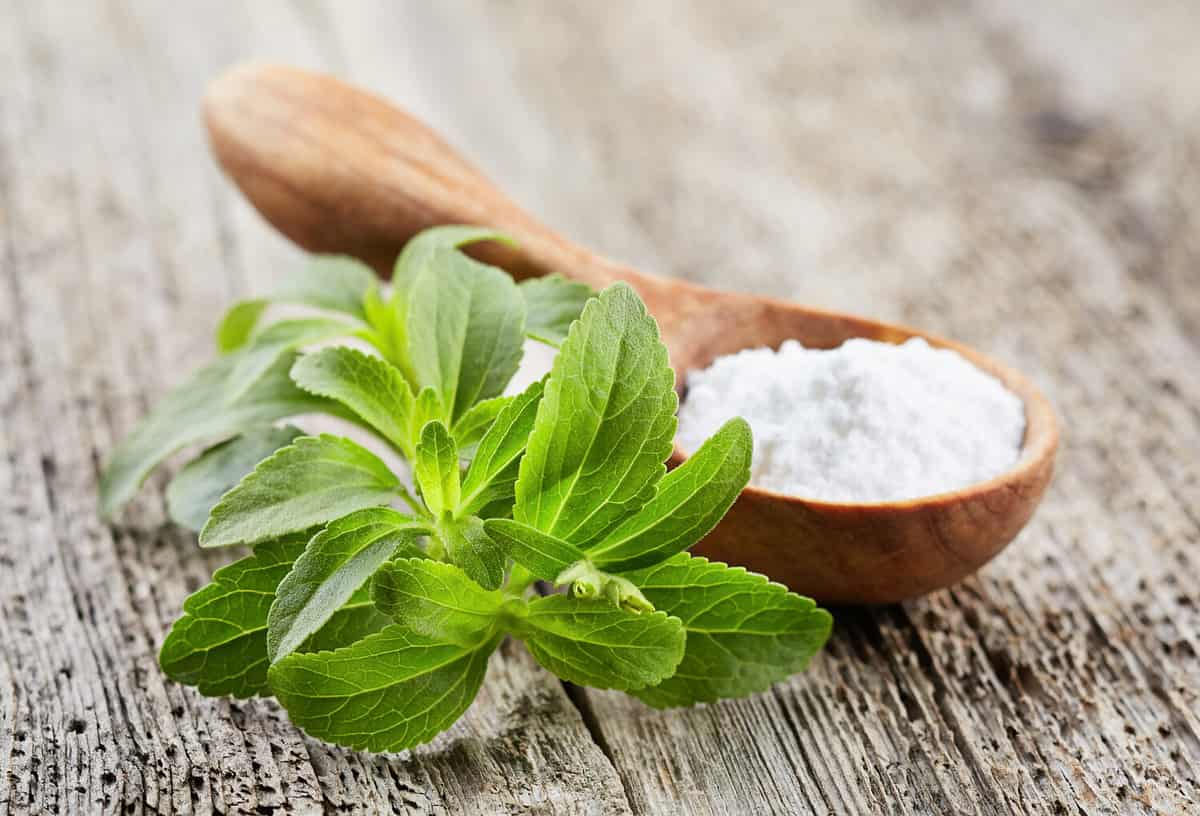
©Dionisvera/Shutterstock.com
Monk fruit contains natural compounds known as mogrosides. These mogrosides are the reason monk fruit tastes incredibly sweet – without adding any calories. What's even more interesting is that mogrosides also have antioxidant properties. This means they can help protect cells from harmful molecules known as free radicals, which can wreak havoc on your body and cause inflammation.
However, the National Institutes of Health reports a study suggesting mogrosides might have other health benefits, like reducing inflammation and potentially fighting cancer, though more research is needed to be sure.
On the flip side, stevia is known for being a healthy, natural plant-based sweetener. It's great for people who need to manage their sugar levels. Why? Because it doesn’t impact blood sugar. And it’s backed by over 200 studies that show stevia as a safe alternative to regular sweeteners. It is also gentler than refined white sugars, easier on the body’s blood sugar, and available in most stores across the United States.
Monk Fruit vs. Stevia: Downside
According to the U.S. Food and Drug Administration (FDA), using monk fruit as a sweetener is generally a safe option. There appears to be no evidence that monk fruit sweeteners cause harmful side effects. On the other hand, in regard to stevia, although rare, some individuals may be allergic to it, so watch out for any adverse reactions like hives or difficulty breathing.
- The must-have convenient reference guide for every home cook!
- Includes more than 8,000 substitutions for ingredients, cookware, and techniques.
- Save time and money on by avoiding trips to grab that "missing" ingredient you don't really need.
But this raises the question: If these sweeteners are safe to use… why are some zero-calorie sweeteners linked to blood clotting, stroke, heart attack and death?
Monk Fruit vs. Stevia: Beware of Additives
Not all monk fruit and stevia sweeteners are purchased in its pure form. Some have additives. That’s why you need to read their labels. Now you may be wondering why additives are found in stevia and monk fruit sweeteners. Simply put, companies use additives as a filler. But here’s the problem: you’re not getting these sweeteners in their purest form and when you add fillers, they can cause a boatload of health problems. One very common artificial sweetener used as a filler in monk fruit and stevia is erythritol.
Erythritol is often advertised as a natural sweetener because it is naturally occurring in some foods. However, it is important to clarify that erythritol, despite its natural presence, is actually a synthetic sweetener. Why? Because it's not naturally present in corn – where it's usually made from.

©New Africa/Shutterstock.com
But erythritol is naturally found in fruits such as grapes, watermelon and pears. So naturally occurring erythritol isn’t the problem. It’s the high doses of erythritol – manufactured as an artificial sweetener – found in packaged foods that can wreak havoc on your body. It’s considered a safe food additive, according to the FDA. And you can find it just about everywhere in grocery stores and restaurants, from soft drinks to “diet” foods. However little is known about the long-term health effects. For example…
Monk Fruit vs. Stevia: Shocking Discovery
One recent surprising study conducted by Dr. Stanley Hazen, director of the Center for Cardiovascular Diagnostics and Prevention at the Cleveland Clinic Learner Research Institute, found a connection between erythritol and cardiovascular issues. For example, researchers tested 2,933 participants for three years to see whether having erythritol in their blood would affect their health, even with a history of heart problems. The results?
The report went on to show that higher levels of erythritol were connected to a greater risk of heart attack, stroke or death within three years. And what about healthy people? Another study reports eight healthy volunteers drank a beverage that contained 30 grams of erythritol – about a pint of keto ice cream – for three days. The results?
Hazen reports that thirty grams “was enough to make blood levels of erythritol go up a thousandfold!” Imagine that!
Note: While both monk fruit and stevia – in their purest form without additives – do not impact blood sugar levels, they should not replace medical management for diabetes or blood sugar conditions. So, if you have blood sugar health concerns, it is important for you to monitor your levels and consult healthcare professionals.
Monk Fruit vs. Stevia: Nutritional Info
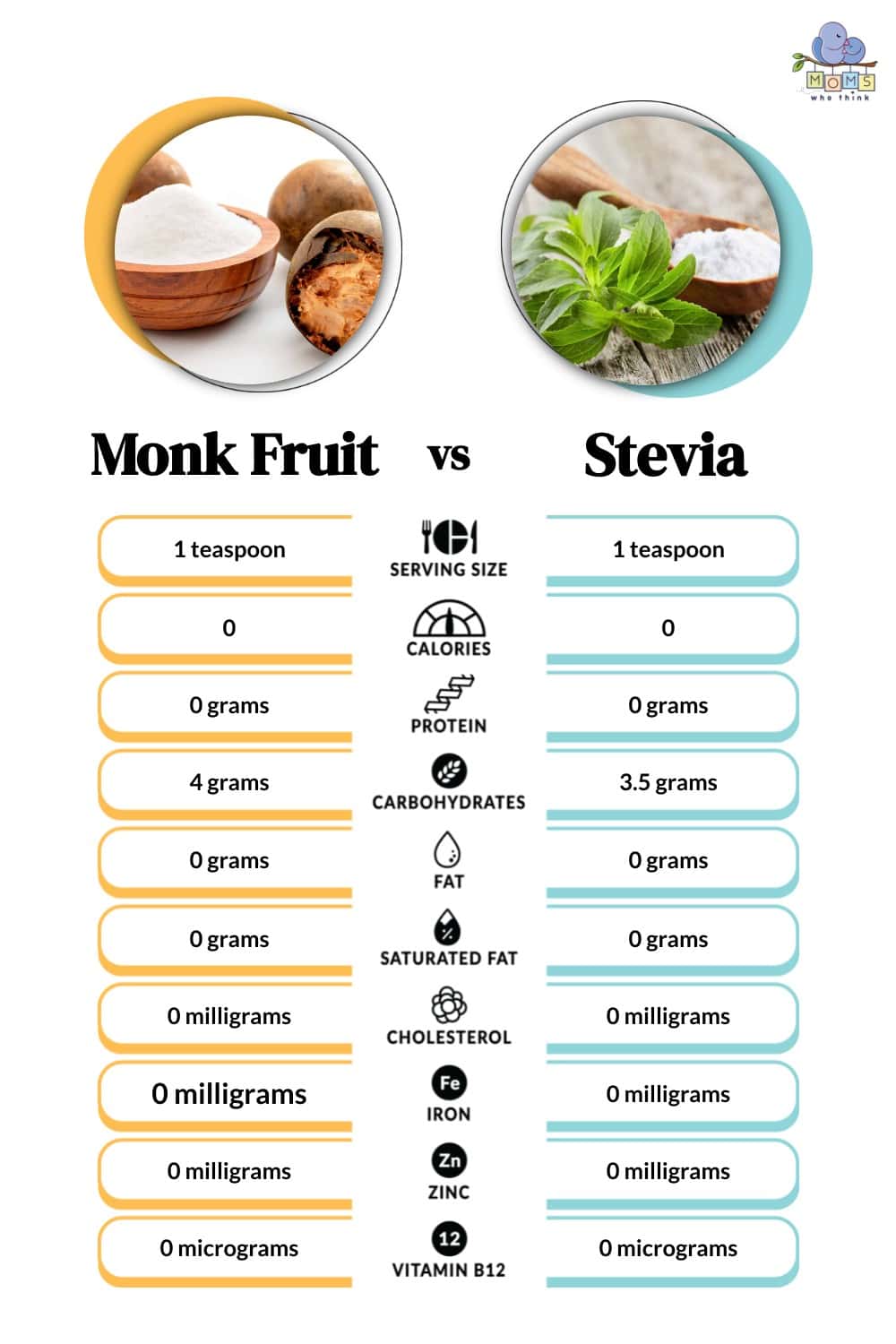
In conclusion
Both monk fruit and stevia are healthy alternatives to sugar and artificial sweeteners. Monk fruit is natural, calorie-free, and contains antioxidants. Stevia is intensely sweet and because it doesn’t cause sugar spikes, can help with blood sugar control. Of course the choice between them depends on your taste and dietary goals. Just remember to use them in their pure forms and enjoy them as part of a balanced diet. So now the choice is yours. Which will you choose monk fruit or stevia as your preferred natural sweetener?
Two Deliciously Sweet Recipes
Other Comparisons
- The must-have convenient reference guide for every home cook!
- Includes more than 8,000 substitutions for ingredients, cookware, and techniques.
- Save time and money on by avoiding trips to grab that "missing" ingredient you don't really need.
